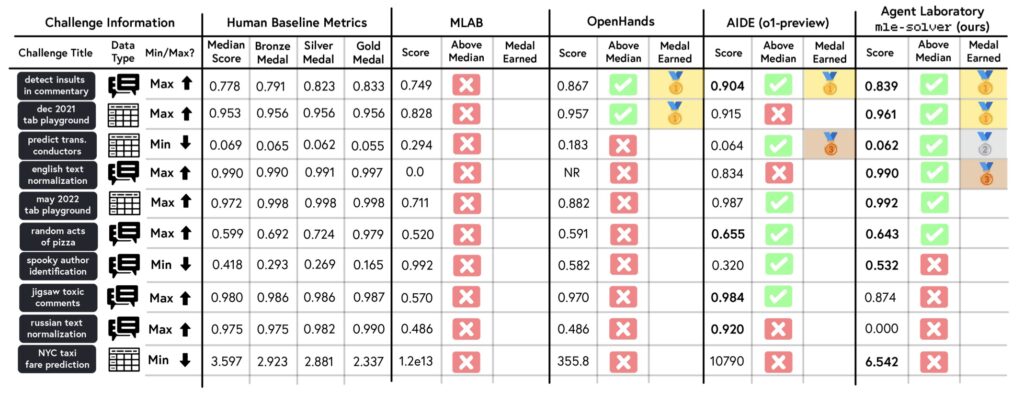A cutting-edge framework leverages LLMs to accelerate research, enhance quality, and free scientists to focus on innovation.
- Streamlining Research: Agent Laboratory automates literature review, experimentation, and report writing, enabling faster and more cost-effective research.
- Human-AI Collaboration: Combining LLM capabilities with human feedback produces superior results compared to autonomous systems alone.
- Expanding Scientific Discovery: By handling tedious tasks, Agent Laboratory empowers researchers to explore more ideas and focus on creativity.
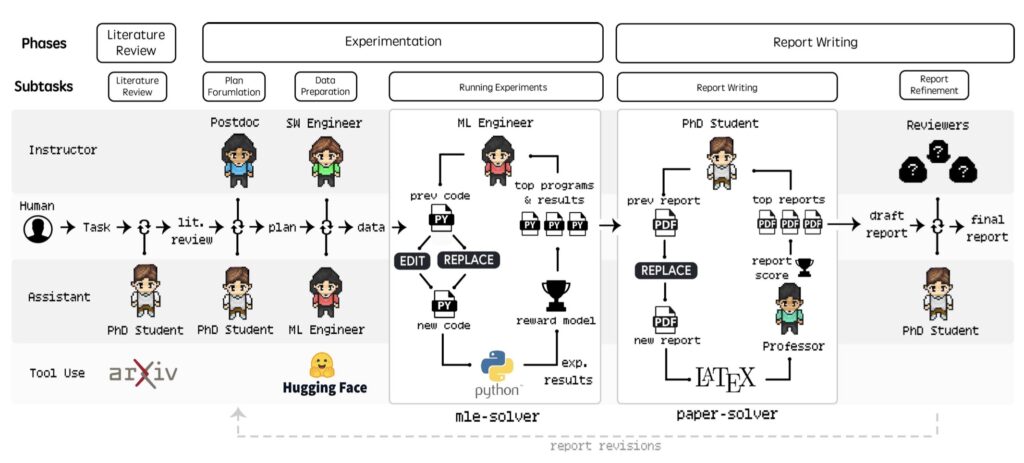
Scientific discovery has traditionally been a slow and resource-intensive process, but Agent Laboratory is changing that. This innovative framework utilizes large language models (LLMs) to automate the research pipeline, from literature review to report generation. By integrating human feedback at key stages, it delivers high-quality outputs while significantly reducing time and costs.
Designed as a co-pilot rather than a fully autonomous tool, Agent Laboratory allows researchers to focus on creative ideation, leaving repetitive tasks like coding and data preprocessing to the AI.
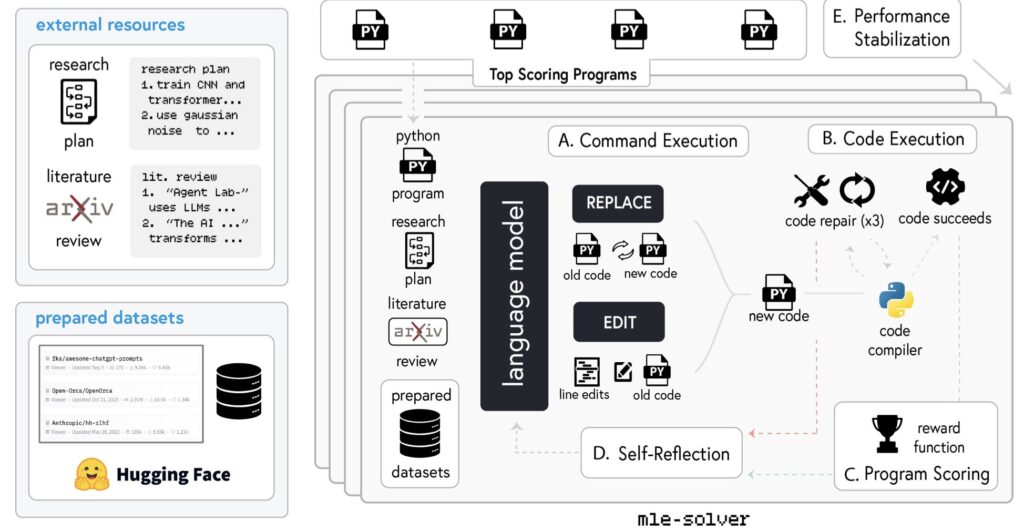
How Agent Laboratory Works
Agent Laboratory operates in three distinct stages:
- Literature Review: The AI scours relevant research, summarizing findings and presenting diverse perspectives on a topic.
- Experimentation: The framework generates and tests machine learning code, achieving state-of-the-art performance in benchmark evaluations.
- Report Writing: It produces comprehensive research papers, complete with code repositories, ready for academic review.
This streamlined approach reduces research expenses by up to 84%, making it accessible to a broader range of scientists and institutions.

The Power of Collaboration
Initial evaluations show that Agent Laboratory excels when human feedback is incorporated. Researchers can guide the AI during each stage, resulting in outputs that are more accurate, insightful, and tailored to specific needs. Compared to autonomous operation, the co-pilot mode consistently produces higher-quality research, as rated by academic reviewers.
The system’s backend, particularly the o1-preview model, delivers exceptional results, balancing efficiency with precision.
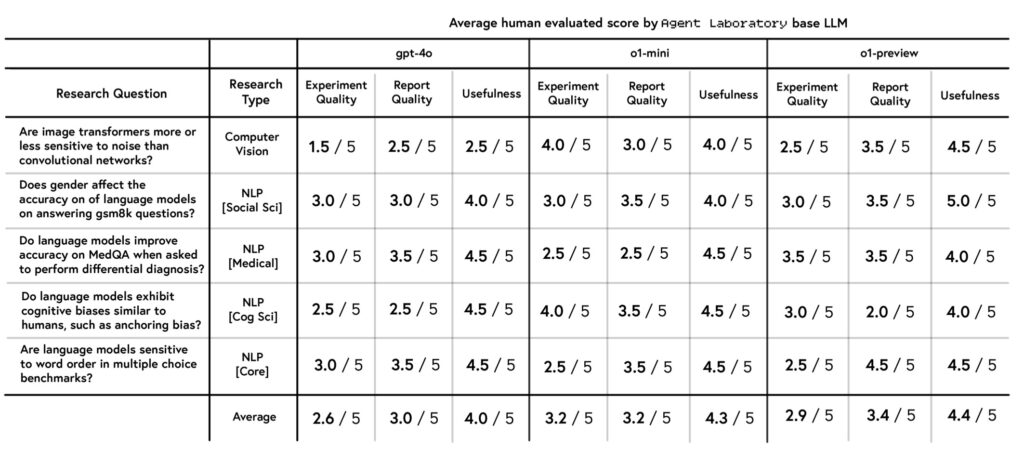
A New Era for Scientific Discovery
Agent Laboratory’s impact extends beyond efficiency. By automating tedious tasks, it empowers researchers to pursue more ambitious projects and explore ideas that might otherwise remain unexplored. Its success highlights the growing potential of AI as a partner in innovation, not just a tool for automation.
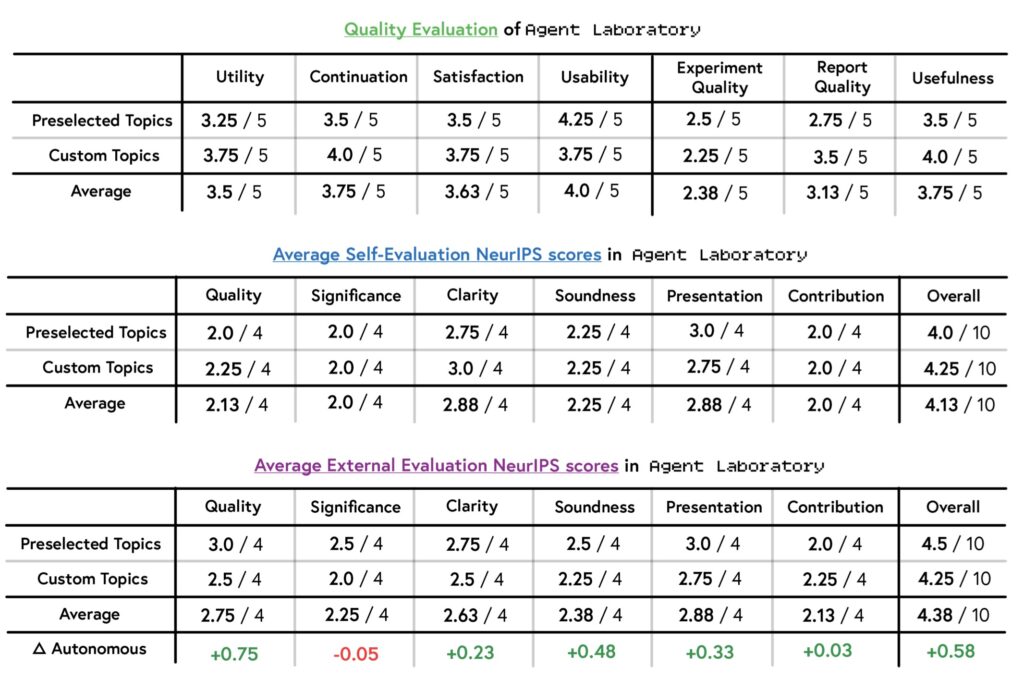
Future Potential
While Agent Laboratory is already transforming research workflows, its developers envision further advancements. Potential improvements include optimizing agent workflows, expanding real-world applications, and conducting longitudinal studies to assess its long-term impact on scientific productivity.
As AI continues to evolve, frameworks like Agent Laboratory are poised to play a pivotal role in accelerating discovery and reshaping the research landscape. Scientists may soon find themselves working alongside AI partners that not only save time but also amplify their creative potential.
